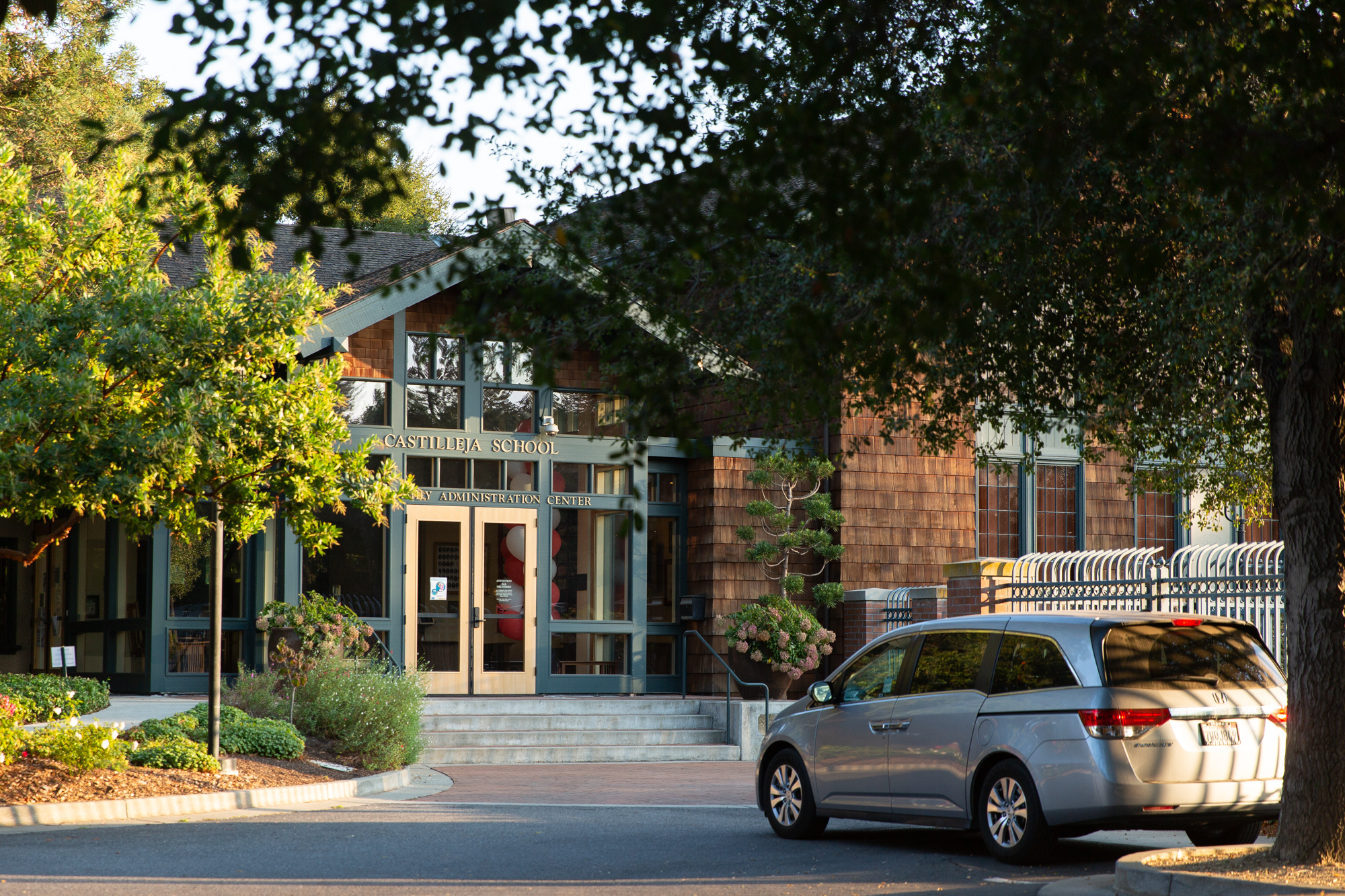Castilleja School's controversial effort to rebuild its Bryant Street campus received a boost Monday night when the City Council approved its plan to relocate a public utility easement that was created more than 30 years ago.
For Castilleja, the vote represented a small but essential step to enable its campus reconstruction, which includes replacing most of the buildings, constructing an underground garage and gradually increasing student enrollment. The council approved the project in June 2022 after six years of public hearings and its decision came with dozens of conditions, including a requirement for the easement relocation.
The easement issue goes back to 1992, when the city granted a strip of land to the school but reserved a 25-foot section so that it could access utility lines. That easement, however, would be partially blocked by the new garage, according to staff. Hence the proposed relocation of the easement about 15 feet southwest.
City staff maintained on Jan. 22 that there's nothing unusual or particularly risky about the relocation of the easement, which is near the intersection of Melville Avenue and Emerson Street. Matthew Zucca, assistant director for water, gas and wastewater in the Utilities Department, said that if the easement isn't moved, a portion of it would end up below the new underground parking structure.
"Right now, the sewer line is at the edge of the easement and this lines up things nicely and gets us a much cleaner access to the actual infrastructure," Zucca said.
Not everyone supported the easement relocation. Council member Lydia Kou, the sole dissenter in the 6-1 vote, criticized the school's new underground garage and the excavation that its construction would necessitate. Like many critics of the project, Kou had argued throughout the approval process that an underground garage does not belong in the single-family neighborhood around the school's campus at 1310 Bryant St.
"I see this as a continuation of the giveaways," Kou said. "We have definitely not clawed back enough benefits for our community."
Rob Levitsky, who lives near Castilleja and who has been critical of its reconstruction plan, called the easement relocation "disconcerting" and accused city staff of being "biased in favor of it for something that's of no benefit to the neighborhood." Speaking for a group of neighbors, Levitsky argued that moving the easement would restrict the city's access to a sewer line that runs through the easement area and increase the risk of sewage accidents.
"At the very least, the city should be indemnified against any accident that happens there so we don't have an accident of sewage in the tunnel and difficult access for the equipment," Levitsky said.
The council also indicated last year that it had some questions and concerns about the easement relocation. The item was initially scheduled to be on its "consent calendar," which is usually reserved for minor or routine actions that have broad consensus and that get approved with no discussion. Council members and staff had twice postponed a scheduled vote on the easement relocation and opted last month to schedule a full hearing on the move.
By the end of the Jan. 22 hearing, council members felt comfortable about approving the easement relocation. They briefly flirted with – but ultimately rejected -- the idea of requiring Castilleja to assume responsibility for any future accidents, even if they are caused by the city's utilities. Zucca assured council members that staff would still be able to access the sewer line if needed and that easement issues like the one at Castilleja are fairly common.
"We maintain sewers throughout the whole city and that happens everywhere we go," Zucca said. "This isn't an unusual risk for us and we have sewers and easements all over the place."
Mindie Romanowski, an attorney representing Castilleja, noted that by proposing the shift, the school is simply complying with the council's own conditions. Even though the 25-foot easement is being shifted, "no public rights are altered whatsoever," she said
"Castilleja has carried out what you and staff have required and what is prescribed under state law," Romanowski said.
Emily McElhinney, Castilleja's director of communications, noted that the city's conditions of approval required the school to submit the easement relocation documents to the city for 'review and recordation' -- not approval.
"The approval by the City Council on this issue is already complete, thus there is no reason for further delay. Castilleja looks forward to proceeding with their approved plan," McElhinney said in a statement.
The council ultimately concurred. Council member Julie Lythcott-Haims said the proposal seemed like a "fairly straightforward moving of an easement. Mayor Greer Stone and Council member Vicki Veenker both said they were reassured by the arguments from the city's legal and utilities staff that the move would not pose a risk.
"I've got to rely on our utility experts," Stone said.



Comments